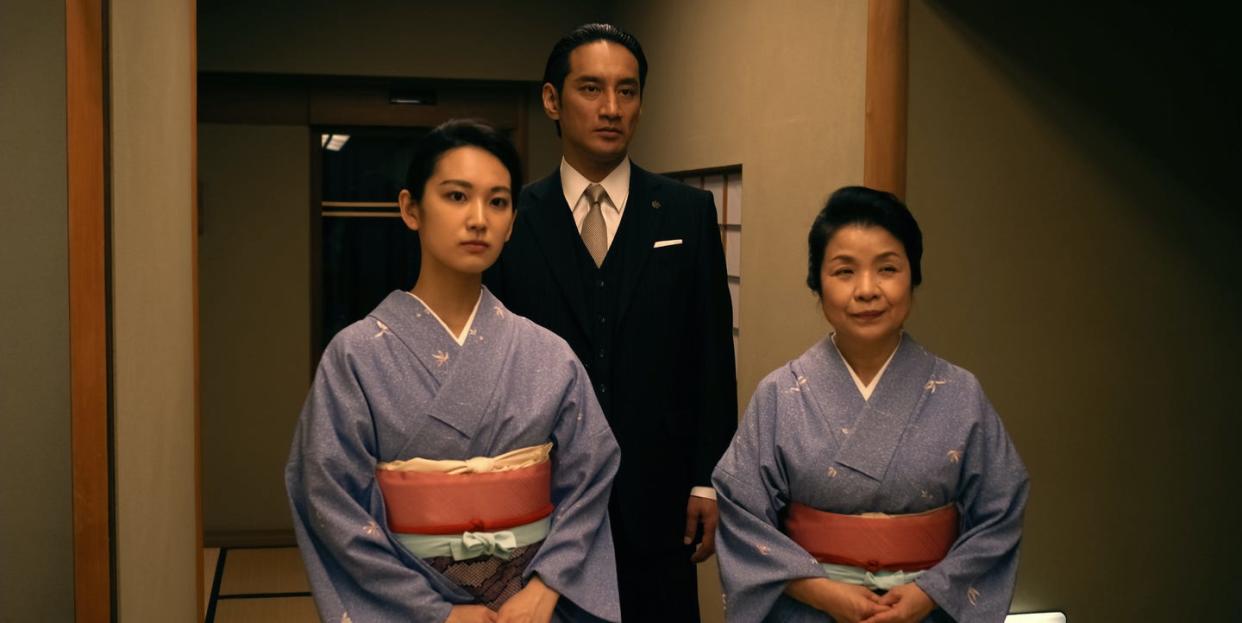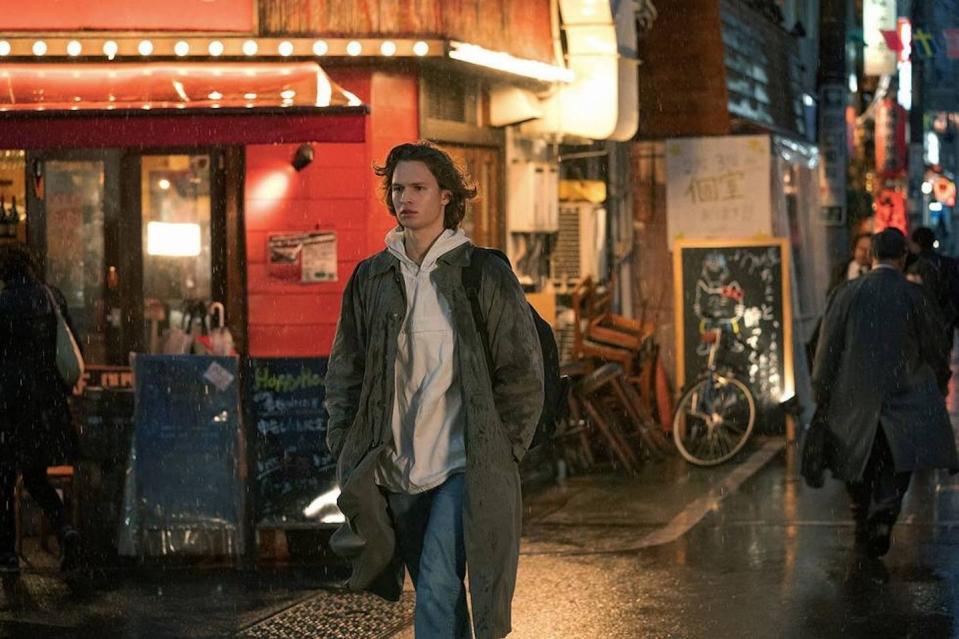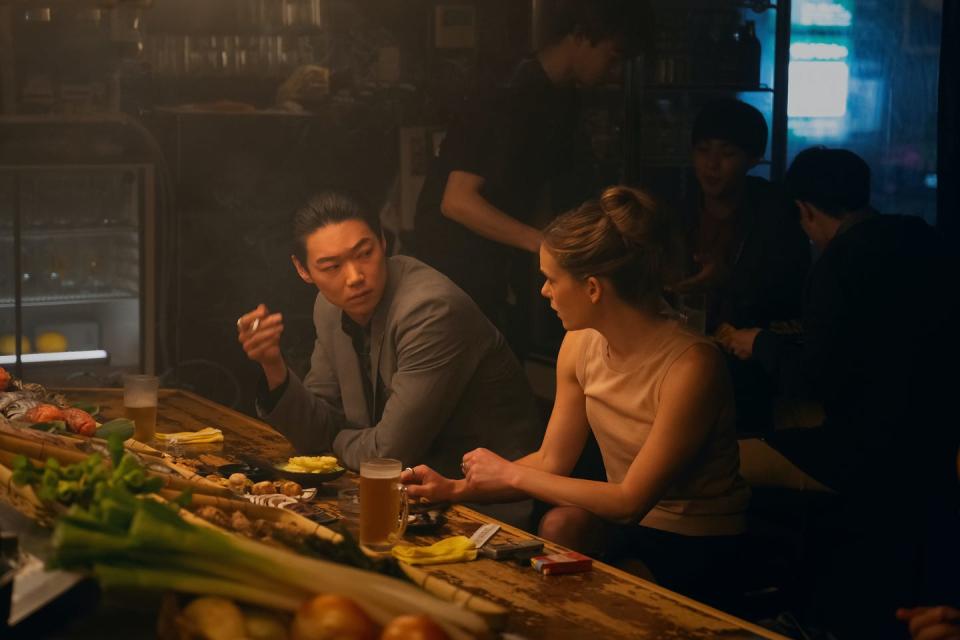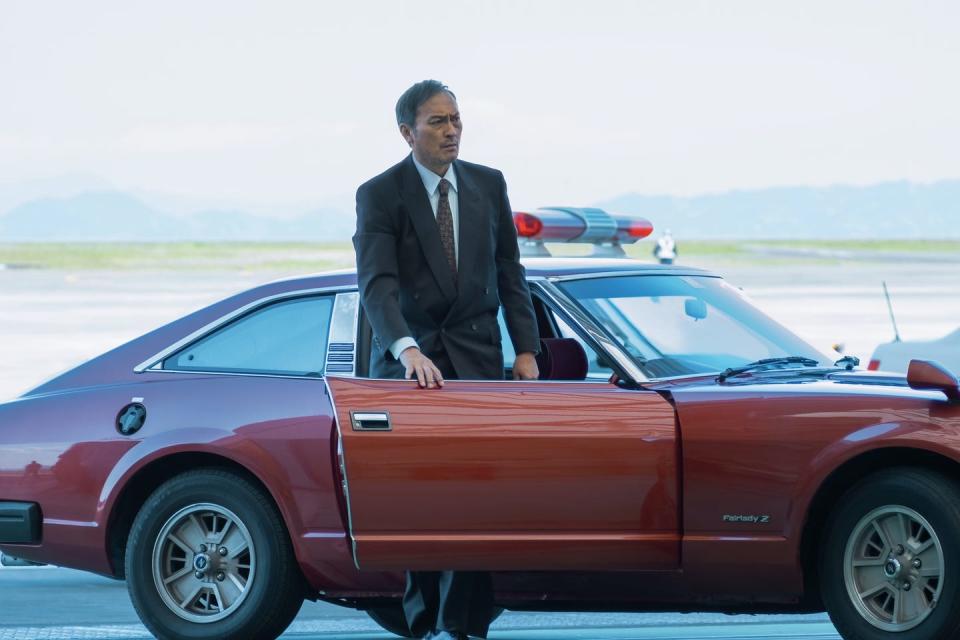Tokyo Vice Is a Layered and Nuanced Portrait of the Japanese Capital

- Oops!Something went wrong.Please try again later.
- Oops!Something went wrong.Please try again later.
- Oops!Something went wrong.Please try again later.
- Oops!Something went wrong.Please try again later.
"Hearst Magazines and Yahoo may earn commission or revenue on some items through the links below."
"We have to create a show that doesn't make our Japanese audience cringe," says J. T. Rogers, referring to priority number one when it came to developing the HBO Max series Tokyo Vice, arguably one of the best and most exciting shows of spring (the entire first season is on the streamer now).
A tall order, indeed. Tokyo, much like Paris, is one of those cities Hollywood has long loved to fetishize—for its perceived exoticism, its otherness, the fantasy of the Orient. It's an all too common trope: A naive American protagonist arrives wide-eyed and curious, in awe of the neon lights and quirky fashions, mystified by the language and customs, perplexed by chopsticks.

Not so in Tokyo Vice, thanks to more than a few factors. Take the pilot, which is directed by executive producer Michael Mann (he of Miami Vice glory). At first this appears to be yet another slick "American in [insert foreign land]" story, as the audience follows along with protagonist Jake Adelstein (Ansel Elgort) as he goes about his expat life. (The series is loosely based on the memoir of the same name by the real Jake Adelstein, an American journalist who relocated to Tokyo in the '90s, got a job at the country's biggest newspaper covering the metropolitan police beat, and proceeded to get in too deep investigating Japan's yakuza.)
It turns out, though, that this isn't as much about Jake's misadventures in Tokyo's criminal underworld as it is about the various members and rival factions of that world, and the detectives tasked with keeping the precarious peace between them all. That at least half of the dialogue is in Japanese helps with authenticity, as does a cast that includes the legendary Ken Watanabe as weathered detective Hiroto Katagiri, Westworld's Rinko Kikuchi as Jake's boss Emi Maruyama, Fargo's Rachel Keller as fellow expat Sam who works as a hostess (essentially a modern but highly pared down form of a geisha) in a yakuza-owned club, and Shô Kasamatsu as Sato, a brooding member of the fictional Chihara-Kai syndicate.

Then there is the approach to the sprawling capital itself, its layers and subcultures, its customs and traditions. "In an odd way Tokyo, in its elegance and beauty, will take care of itself. We had to keep narrowing the lens," Rogers says. "What is the newspaper culture like, what is the yakuza culture like, what is it like in the mizu-shōbai [the hostess clubs and nighttime entertainment business]. We needed to constantly dig into these and be as insanely specific as possible."
There is a refreshing lack of explanation—and fetishizing—of things. No lingering shots of where they are or what exotic food they're eating. The audience is trusted to connect the dots. In an early scene, Jake, hoping to get in the good graces of Watanabe's Katagiri, buys a very expensive melon and brings it to his family. For those who already know that the Japanese are OGs in the realm of status produce and that exquisite fruits are gifted as gestures of apology or gratitude, this scene is familiar. For those who don't, it's a subtly delivered cultural lesson. "We went back and forth in early drafts about the scene," Rogers says. "And we decided to just have him buy it and the audience can go, 'Oh, I don't know what that is but that's clearly important.'"

Rogers also acknowledges that Jake's character arc was conducive to a more genuine portrayal. "He may be a newbie and in over his head and cocky the way young people are, but he knows Japanese fluently. He knows the city. So that gave us permission, as storytellers, to say, 'Well now the audience will just have to catch up with us,' which is what I love when I'm watching a show," he says. "As long as I feel I'm in good hands I really enjoy not knowing for a while, and the satisfaction of learning in a pleasurable way."
Through Tokyo Vice's lens, which brings its viewers into corners and places in town they probably have never seen before, the city is as pulsating as it is serene, as glossy as it is gritty, as modern as it is ancient, as extraordinary as it is mundane. "It's a confounding metropolis," Rogers says. "And I mean that as high praise."
You Might Also Like

